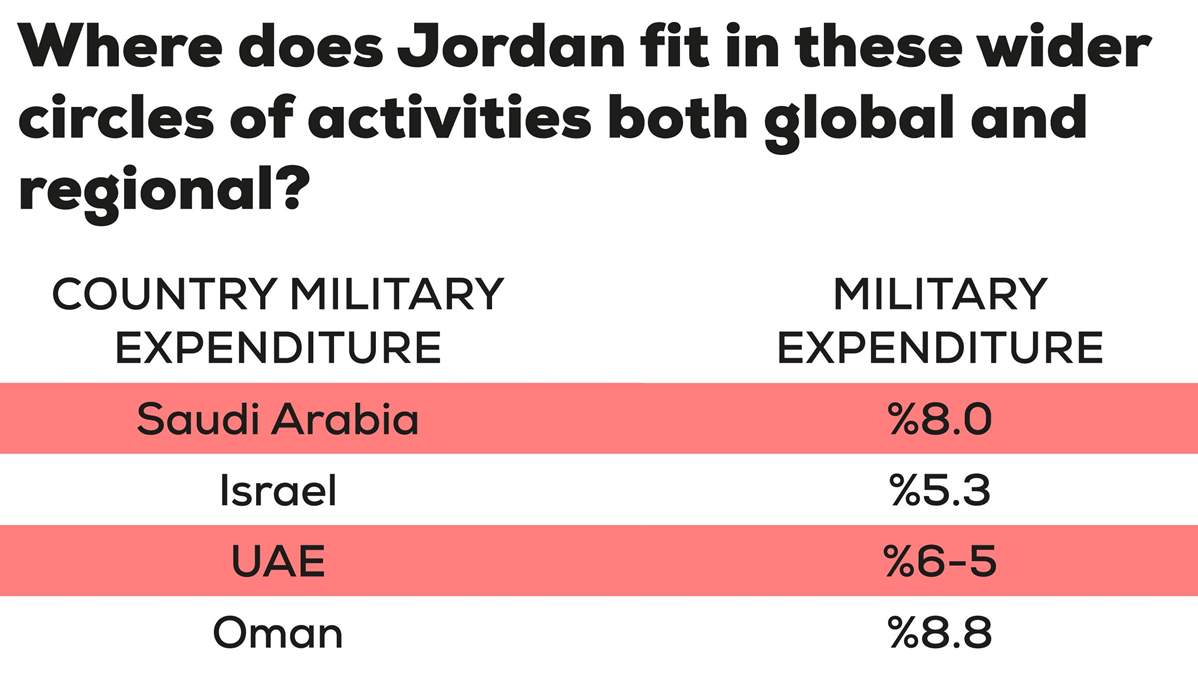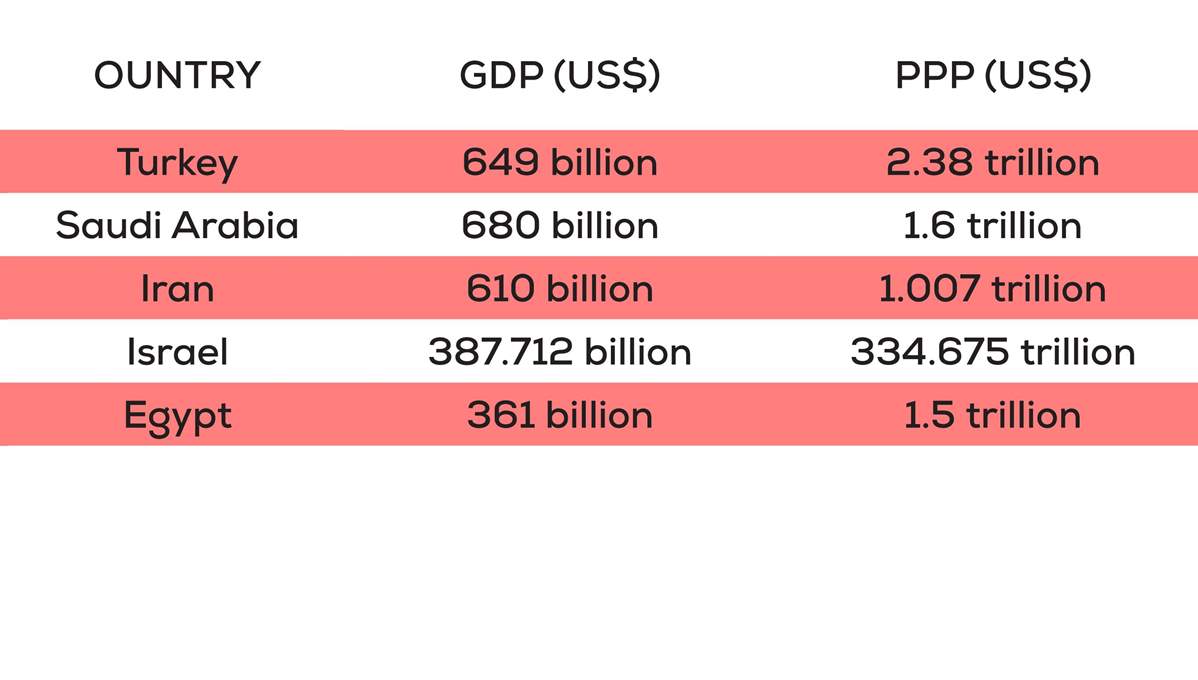AMMAN — A new report from the
University of Jordan’s Center for Strategic Studies explores Jordan’s position in a changing global landscape.
اضافة اعلان
The May 2021 report touches on a variety of issues relevant to Jordanians today, including diplomatic relations between Jordan and Israel and the threat of nuclear powers in the region.
The report, written by both Professor
Zaid Eyadat and Professor Mohammad Khair Eiat, is the first of its kind; a pilot for more detailed strategic reports that the center will issue annually covering the most pressing issues in regional and international politics.
Domestically, the report focuses on political reform in Jordan and the key issue of Palestinian identity in Jordan. “Jordan political reform can be fully implemented and sustained only when Palestinians have secured identity. Both Jordanian and Palestinian identities are evolving. Both prone to (the perceived threat) of marginalization.” Throughout the report, the
CSS emphasizes that understanding identity is key to understanding global relations and power dynamics.
The “identity challenge facing Jordan can only be addressed meaningfully in the context of Jordanian, Palestinian and Jewish identities (being) secured and self-assured,” writes the report. Later, it states that “neither Israel nor Jordan can ignore the Palestinian component of their national identities.” Though the report was written before the wave of violence between Israel and Palestine, it touches on both Jordanian-Israeli relations and Jordanian-Palestinian relations.
On the phone with Jordan News, Eyadat discussed the “asymmetry” of power central to Jordan’s relationship with Israel. As written in the report, while Jordan and Israel are similar in terms of population size, Israel’s economy is almost 9 times that of Jordan’s. This “asymmetry in power”, according to the study, tempts Israeli policymakers to “devalue” Jordan‘s strategic assets, creating suspicion on the Jordanian side that Israel might attempt to address its strategic vulnerability on Jordan’s expense, according to the publication.
According to Eyadat, the recent conflict will not likely change Jordan’s diplomatic relations with Israel. Resolving the conflict is still blocked by the right-wing government leading Israel, he said. The report concludes that in terms of international relations and diplomacy, “Jordan(‘s) status and value are unlikely to go through dramatic or drastic reassessment anytime soon.”
On the international level, “the most important thing is the confusion and ambiguity on the international level in terms of the nature of the world,” Eyadat said. He discussed the many “alignments and realignments that are taking place globally and regionally” to shift long-standing power dynamics across the world.
The report starts by attempting to answer the question “what are the characteristics of the world we live in?” The answer, according to the Center for Strategic Studies, is that the world we live in is mostly uncertain, and occupied by anxiety over the global roles of Russia and China, and Iran’s nuclear ambitions. The report contrasts the ambitions of authoritarian governments with the rise of liberal governments and institutions invested in human rights, writing that “Russia’s authoritarian form of government is in direct conflict with the rule of law and democratic values the Biden administration (is) trying to promote or at least uphold. Russia in this context is a direct challenge to that orientation and the seriousness of that challenge cannot be underestimated.”
The publication also addresses the role that nuclear weapons play in geopolitical realignment, writing that “pursuing the goal of nuclear disarmament as a structural way of addressing (the) issue of nuclear proliferation is both sensible and logical. This, however is unlikely to be achieved in the foreseeable future nor to be seriously pursued by nuclear weapon states.”
Then, the report zooms in on the Middle East, asking, “how dangerous and out of control is the Middle East region? Or is it?” The ongoing conflict in the region is defined as “the product of tension within and between states which (were) never allowed to evolve into natural end nor for method of self-correction to function.”
Eyadat criticized the ambition for “hegemony” in the region, echoing the argument of the report: “Any regional state which sees the goal of regional hegemony as a guide of policy is pursuing an illusion and inhabiting the world of fantasy.”
The possibility of Iran becoming a nuclear power would destabilize the entire region, according to the report, which declares that “preventing Iran from acquiring [the] nuclear option is (a) regional and global necessity.” The report calls for both the “revival and implementation of the Middle East region as a nuclear-weapon-free zone,” which will require cooperation from all governments in the region and “the creation of global consensus to pursue consistently the purpose of non-proliferation nuclear regime, namely nuclear disarmament.”

 Read more National News.
Read more National News.







